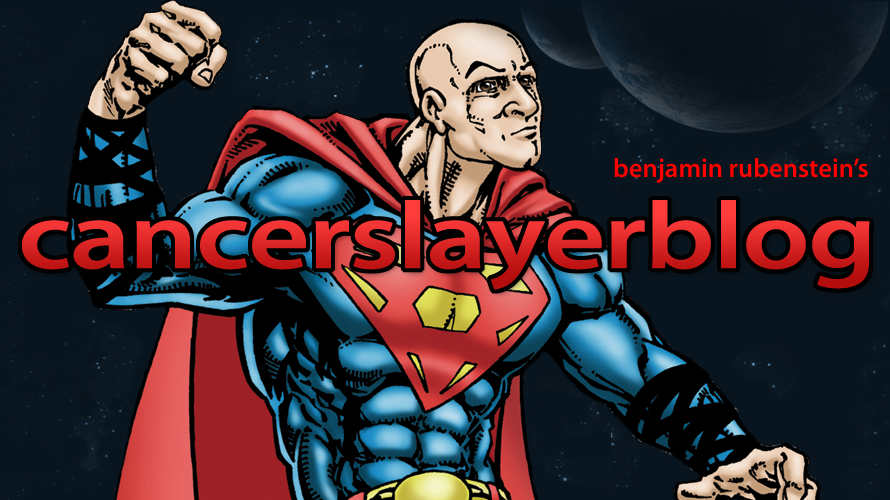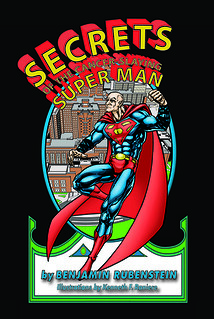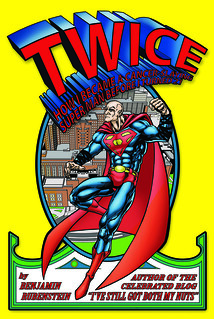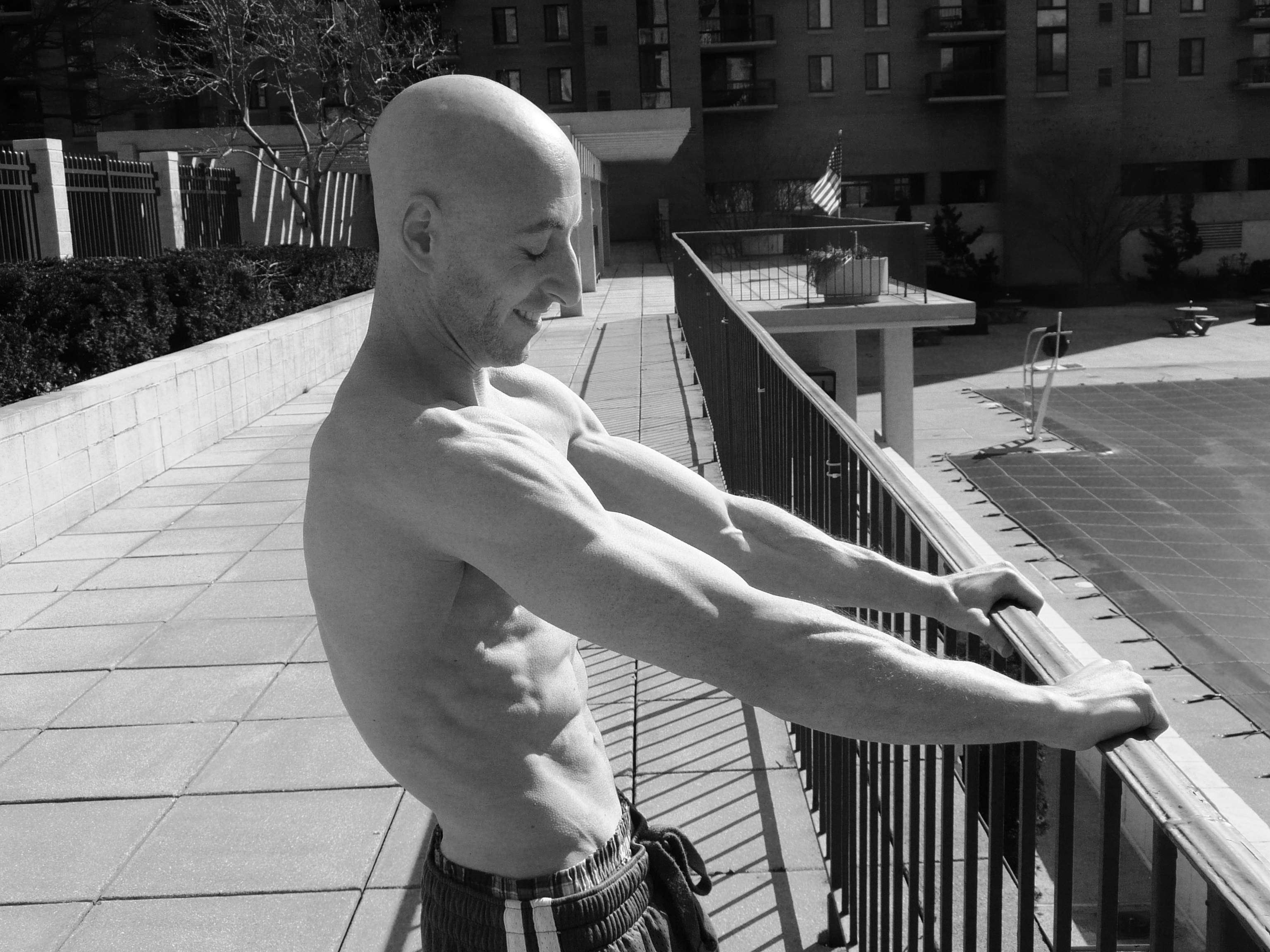Read these first:
I Am a Cancer Survivor (Part I of IV)
I Am a Cancer Survivor (Part II of IV)
In my final year at the University of Virginia I took Problems of Personal Adjustment, a supposed gut class. I had to get counseling for my class project—that’s how I justified it. Otherwise I’d be admitting that I was a pussy, one of those people who can’t deal with cancer. Shari—a petite, dirty blond mother of two young girls—was my counselor. Before seeing her I would’ve rather been forced to sit through a Barbara Streisand concert than spend one second with a counselor.
Shari thinks I went numb. “Dealing with cancer can be so overwhelming that we turn off emotions until we get through it. But it doesn’t seem to be working anymore, does it?”
Shari challenged me with questions, and I was learning more of me that I didn’t know was there. Even when my class requirement was met, I kept coming.
“If you were forced to send your mother a message, what would it say?” she asked.
“She’ll figure it out when the book comes out,” I said.
Shari didn’t let me off the hook, so I thought about it more. “I guess I’d want to thank her.”
That was one of the first times I considered the vastness of my parents’ sacrifices. But Shari wasn’t satisfied and had me ponder the question for our next weekly session. Then, I said, “If I had to tell my mom one thing, then I would want to say that I’m okay. She worries about me all the time and I just wish she knew that I’m alright—always have been and always will be.”
Shari made me think about sadness. She said that by not experiencing sadness, I’m depriving myself of a part of life. “I sometimes experience sadness,” I pleaded, before realizing she was referring to crying. Ever since I told Shari I hadn’t cried since September 2000, she was both fascinated and concerned. So, she pushed me until I understood my aversion.
The day after I had learned of my tumor, I wanted to cry. I weighed the extent of my cry, and chose to sob. My body shook, moans escaped, my head jerked around, and snot poured out of my nose. I quickly felt awkward, so I brought myself under control and vowed to never cry again.
That had been one of my defining moments—when I thought I was somehow special. Not just unique in my ability to deal with cancer, but as if there was something in me nobody else on Earth had. After that cry, Superman was born.
Shari asked to see the photo of me that I carried in my wallet. The photo had been taken right before I began treatment, a symbol of who I used to be, who I could’ve continued being if it wasn’t for that uncontrolled group of malignant cells. That 16-year-old Benjamin was free to chase down balls on the tennis court, and free to pace his way to a five-year bachelor’s degree like his brother, and free to run the girls wild with his curly locks. I loved that kid. He had energy and humor, hope and health.
“This was when you were 16?” Shari said, grinning at my youthful appearance. “Do you look at it often?”
“No,” I said, grabbing the picture from her. But before I lodged it back in my wallet, I stared at the teenage boy looking back at me. “God, I miss playing football. My friend, NoCommonSense, and I used to call ourselves the Bash Brothers. We had this one play where, in the huddle, I’d say ‘The Play?’ and he’d just nod his head. When I snapped the ball he’d run a fly route, I’d pump fake, then throw up a bomb for a touchdown.”
Boom! Right then I understood that I was no longer 16 years old and never would be again. My days of just being a kid, as well as fighting cancer, were long gone. My hip, hair, innocence and adolescence were all stolen from me. In a sense, that 16-year-old boy died.
“I bet you’d do just about anything to be 16 again, wouldn’t you?”
Something was happening. I felt funny. My voice softened. My eyes glistened and I breathed deeply. I was losing control. “Just let go,” Shari said.
I was terrified to let go—as scared as I’d ever been. “I can’t,” I managed to say. “This isn’t me. I don’t let things get to me like everyone else. I’m better than those people.”
“You can cry and still be strong. It isn’t one or the other. At the same time you can be happy that you’re alive and angry about what happened to you.”
My body felt helpless. But I wouldn’t succumb, fighting my hardest to hold the tears back. Does crying make me less of a human being? If Pre-Cancer Ben saw me cry would he be ashamed of me? What if God really did endow me with some kind of unique gift? Will I throw that away if I cry?
“It’s okay, I’m right here,” Shari said. “Just let go.”
My stomach ached. I was sweating. I wanted to break everything in the room, yet collapse at the same time. My body wanted to let go, but I resisted. Then, a line from the movie Munich crossed my mind: “We are supposed to be righteous. That's a beautiful thing. And we're losing it. If I lose that, that's everything. That's my soul.”
If I cry, will I lose part of my soul and never get it back?
I gained control and saved my tears for another day.
Keep reading: I Am a Cancer Survivor (Part IV of IV)








0 comments:
Post a Comment